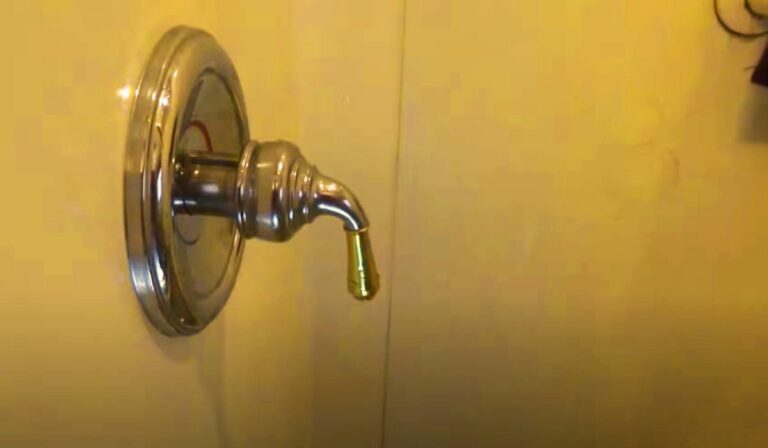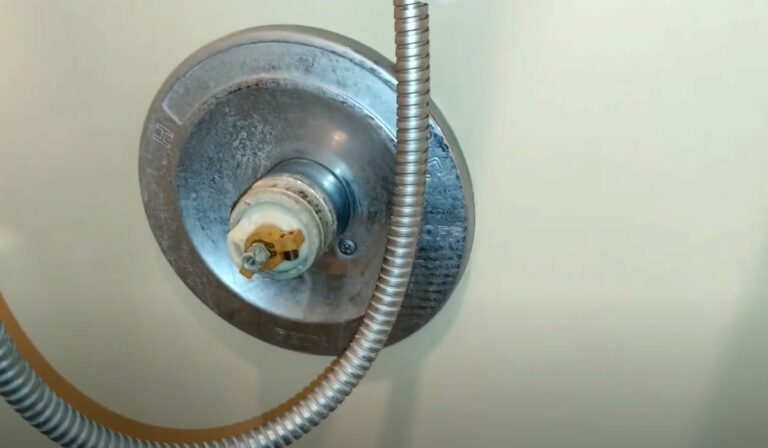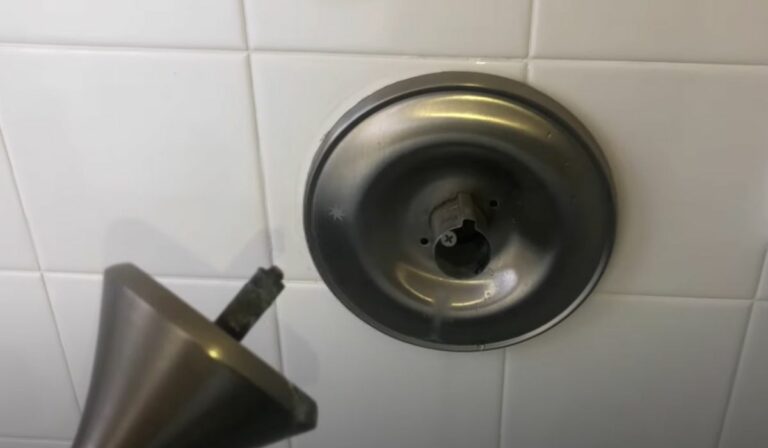What Is the Orange Stuff in My Shower
The orange stuff in your shower is usually rust from iron or manganese in your water, especially if you have well water or older pipes. This happens when these minerals oxidize and leave reddish-orange stains on surfaces where water lingers. Sometimes it’s iron bacteria causing slimy patches with an earthy smell. You can clean it with vinegar or rust removers, but if it keeps coming back, there are ways to prevent it and when to seek professional help to tackle the issue.
Common Causes of Orange Residue in Showers
Although it might seem puzzling at first, the orange residue in your shower usually comes from iron or manganese in your water supply. When these minerals oxidize, they leave behind that distinct rusty or reddish-orange stain on your fixtures and tiles.
You’ll often notice it more in areas where water sits longer or drips slowly, like around faucets and showerheads. This buildup isn’t harmful but can be stubborn and unsightly.
If your water source is well water or older pipes, the chances of iron or manganese causing these stains increase. Hard water, which contains various minerals, can also contribute by allowing these metals to settle more easily.
Understanding these common causes helps you address the residue effectively without unnecessary worry.
How to Identify Iron Bacteria and Rust Stains
While both iron bacteria and rust stains create similar orange discolorations in your shower, you can tell them apart by their texture and behavior.
Iron bacteria often appear slimy or gelatinous and may form clumps or streaks that feel slippery to the touch. You might notice a musty or earthy odor where iron bacteria thrive.
Rust stains, on the other hand, look like dry, flaky, or powdery deposits that are firmly attached to surfaces. They usually don’t have a smell and won’t feel slimy.
Rust forms from oxidized iron in your water or pipes, while iron bacteria are living organisms feeding on that iron.
Effective Cleaning Methods for Orange Shower Stains
Since orange stains in your shower can come from either iron bacteria or rust, choosing the right cleaning method is crucial for effective removal.
For rust stains, use a commercial rust remover or a paste made from baking soda and water. Apply it directly, let it sit for 10-15 minutes, then scrub with a non-abrasive brush before rinsing thoroughly.
If iron bacteria cause the stains, try a vinegar soak; spray white vinegar onto the affected area, let it sit for 30 minutes, then scrub and rinse.
For persistent stains, a diluted bleach solution can help, but use it cautiously and ensure good ventilation.
Always test cleaning agents on a small spot first to avoid damaging your shower surfaces.
Regular cleaning speeds stain removal and keeps your shower looking fresh.
Preventing Orange Build-Up in Your Bathroom
Removing orange stains is only part of the battle; preventing them from coming back saves you time and effort in the long run.
To stop orange build-up, start by reducing moisture in your bathroom. Use a fan or open a window during and after showers to keep surfaces dry.
Regularly clean your shower with a mild cleaner to prevent mineral deposits from settling.
Consider installing a water softener if hard water causes the stains, as it reduces iron and minerals.
Wipe down shower walls and fixtures after use to minimize residue.
Lastly, keep an eye on your water source and plumbing for any rust or corrosion that might contribute to the orange tint.
Consistency in these steps will help maintain a clean, stain-free bathroom.
When to Call a Professional for Shower Stain Removal
If you’ve tried cleaning your shower stains multiple times without success, it might be time to call a professional. Persistent orange stains, especially those caused by iron or hard water deposits, can be tough to remove with regular cleaning methods.
When stains reappear quickly or cover large areas, a professional’s expertise and specialized equipment can make a significant difference. Also, if you notice damage to your shower’s surface or plumbing issues linked to mineral buildup, don’t hesitate to seek help.
Professionals can assess the root cause and provide effective treatments or repairs, saving you time and frustration. Remember, early intervention prevents stains from becoming permanent, so calling a pro at the right moment ensures your shower stays clean and damage-free.
Frequently Asked Questions
Can Orange Shower Stains Affect My Health?
Orange shower stains usually don’t affect your health directly, but they can indicate bacteria or iron buildup. You should clean them regularly to prevent potential skin irritation or respiratory issues from mold or bacteria growth.
Is the Orange Residue Harmful to Plumbing Pipes?
No, the orange residue isn’t harmful to your plumbing pipes. It’s usually iron or mineral buildup, which might cause minor clogging over time but won’t damage pipes. Regular cleaning helps keep your plumbing in good shape.
Can Water Softeners Reduce Orange Stains in Showers?
Yes, water softeners can reduce orange stains by removing iron and minerals that cause discoloration. You’ll notice less buildup over time, making your shower cleaner and preventing those stubborn orange stains from forming.
Does the Orange Build-Up Stain Other Bathroom Fixtures?
Yes, the orange build-up can stain other bathroom fixtures like sinks, tubs, and faucets. You’ll want to clean them regularly to prevent stubborn rust or mineral deposits from setting in and ruining their appearance.
Are There Eco-Friendly Cleaning Products for Orange Stains?
Yes, you can use eco-friendly cleaners like vinegar, baking soda, or lemon juice to tackle orange stains. These natural options are effective, safe for the environment, and won’t harm your bathroom surfaces or your health.
Conclusion
If you’re seeing orange stuff in your shower, it’s likely iron bacteria or rust stains from your water or plumbing. You can tackle these stains with the right cleaners and regular maintenance to keep your bathroom looking fresh. To prevent build-up, consider water treatment options and routine cleaning. But if the stains persist or worsen, don’t hesitate to call a professional to ensure your shower stays clean and safe.



